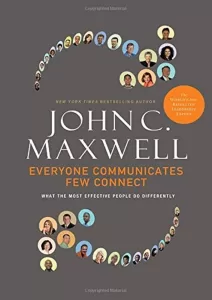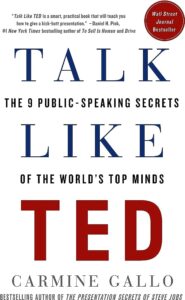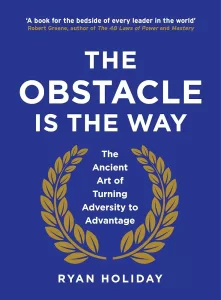Book Review: “Growing Influence”
Book: Growing Influence by Ron Price and Stacy Ennis
Reviewer: Bobby Powers
My Thoughts: 9 of 10
Growing Influence is a work of fiction written for a nonfiction audience. Similar to Patrick Lencioni's "fable" style of business writing, Price and Ennis use a poignant narrative as a vehicle to convey leadership lessons. Growing Influence tracks the journey of a woman named Emily who has been passed over for several promotions by her discriminative boss. At her wits' end, Emily receives mentorship from an unexpected source: a stranger named David in a coffee shop. The mentor/mentee relationship between the two is beautifully told by authors Price and Ennis. Tucked within the narrative are insightful gems about how leaders need to govern themselves first and focus on integrity to win influence. I loved this book!
Selected Quotes and Ideas from the Book
The 3 Areas of Influence
- Influence = "The capacity or power to have an effect on someone or something"
- "A leader is a person of influence who has learned to work properly within the three areas of influence":
- Control - Areas in which you have 100% control over your situation
- Examples: What time you wake up, how you schedule your morning before others arrive in the office, etc.
- "Nobody can block someone from having influence in this area, and yet if they fail to influence, there's nobody to blame but themselves."
- Collaboration - Finding others in the company who want the same thing you want, then working with them to achieve it
- Examples: Partnering with co-workers to advance a key project/initiative, banding together with others to create a "virtuous conspiracy" of doing good things for others in your company, etc.
- Concern - Areas within your company/industry which you cannot directly influence right now
- Examples: Worries that are taking up a lot of your time/energy or distracting you that you cannot currently control (office conversations about acquisitions, layoffs, etc.)
- Control - Areas in which you have 100% control over your situation
- "Whichever of these areas of influence you focus on is going to grow—usually at the expense of the others. You could think of each area like a circle: control, collaboration, and concern. When one circle grows, another shrinks."
The 3 Dimensions of Leadership
- "The core idea of the three dimensions of leadership is that influence is leadership, and a leader's true influence is some combination of all three dimensions. Each of these dimensions of leadership has separate measures of integrity."
- Character Leadership - The influence people have because of who they are
- What "integrity" looks like in this dimension of leadership: Staying connected to your values, treating others with respect, living true to your word, being fully present in conversations, exercising vulnerability
- "We follow character leaders because there's something more than just a logical reason to do so. They touch a deeper part of people, at an emotional or spiritual level, and inspire loyalty."
- "When you live your values, you'll naturally attract people who have similar values, and they'll follow you."
- Expert Leadership - The influence people have because of what they know or have accomplished
- What "integrity" looks like in this dimension of leadership: Using your expertise to create real value for others, improving someone else's life with your experience, continuing to grow in your field, creating new expertise that adds to the value you can offer others
- "You can have great character, but no company will hire you if you don't have skills or knowledge. You have to actually be able to accomplish something...People will give you power—they'll freely follow you as an expert leader if you know how to do something they need or if you can solve problems they have."
- Positional/Structural Leadership - The influence people have because of their title
- What "integrity" looks like in this dimension of leadership: Following the rules of your position/company/industry, measuring and advancing the value your team provides to the company, managing relationships with grace and candor
- "The first thing to understand is that people follow the position, not the person, when it comes to structural leadership. They follow because of the power or authority of the position within the organization...positional leadership is always based on external endorsement."
- "What a positional leader says, their demeanor, and how they present themselves—all of this is amplified either for better or for worse. So, if you use the right words, and have a positive demeanor and presence, you're bigger than life, in a good way. And if you use the wrong words, and have a negative demeanor and presence, you're bigger than life...and that's to the detriment of the people who follow you."
- "It's just important to remember that the position is bigger than you. Don't delude yourself into thinking you are the position. You've been given the opportunity to serve in the position."
- Character Leadership - The influence people have because of who they are
- "Position, expertise, and character are always a work in progress. It's very important that you realize you're not finished. You're not even close to being finished. None of us are. Great leaders who make the most of their opportunity never have the attitude that they've arrived."
- "[Emily had] always considered a title necessary to have influence in her company, but really, anyone could have influence."
- "The first step to leadership growth is self-awareness—a greater ability to stand back and recognize what's happening within you and around you."
3 Things Great Leaders Do
- "The first thing great leaders do is turn problems into opportunities. In fact, they realize their purpose is in large part about solving problems."
- "Great leaders inspire people to make commitments they wouldn't otherwise make."
- "They transcend self-interest and self-promotion. What captures their attention and passion is bigger than themselves."
Personal Values
- In the book, David takes Emily through an exercise to identify her personal values. He encourages her to thoughtfully determine her top five values for governing herself and her top five values for relating to others.
- "[Identifying your personal values] is important because this is about who you want to become, and who you want to become as a human being is at the core of your future leadership influence, not to mention your personal relationships."
- "Identifying values doesn't mean you're going to be perfect—you're kind of creating your own leadership constitution, defining the things that are most important to you. At the end of your career, you want to be able to say, 'I governed myself according to these things.'"
- "My values remind me of who I want to be, not just who I am...Values are aspirational. They point the way to who we want to become. It's not about perfection; it's about continual pursuit."
- "Once you define your values, it's easier to notice when you're not living up to them. Don't beat yourself up, but do try to get better."
- "One way you can stay accountable is by going through the list and ranking how you think you're living each of the values on a daily or weekly basis."
Other Leadership Lessons
- "Maximum power is often a matter of timing. If you don't pick the right time, you won't get the results you're looking for...It's not just about know what to say; it's understanding when to say it."
- "Lead with logic, follow with emotion."
- "You should aim for people to feel energized and heard after they interact with you...Energizing others really shifts the way you engage."
- "Every failure, every adversity, every heartache carries with it a seed of an equal or greater benefit." -Napoleon Hill
- "Your greatest final act of leadership will be giving what you've learned to someone else."
Think you’d like this book?
Other books you may enjoy:
- How to Win Friends and Influence People by Dale Carnegie
- The 5 Dysfunctions of a Team by Patrick Lencioni
- The Only Way to Win by Jim Loehr
Other notable books by the authors:
Want to become a stronger leader?
Sign up to get my exclusive
10-page guide for leaders and learners.







